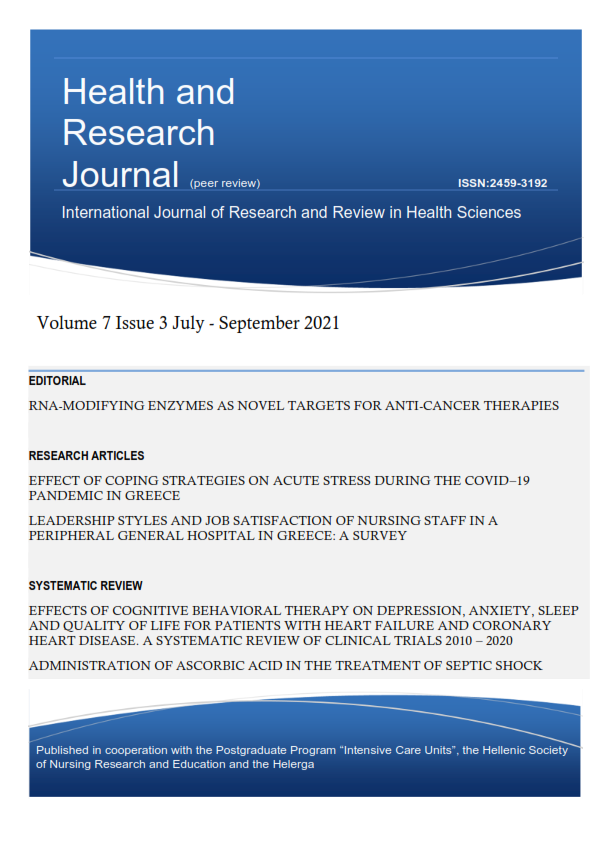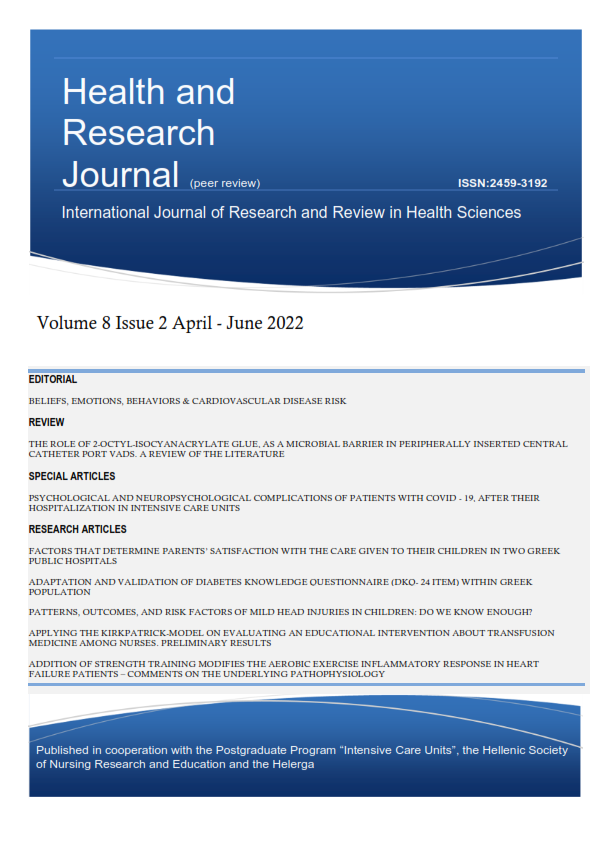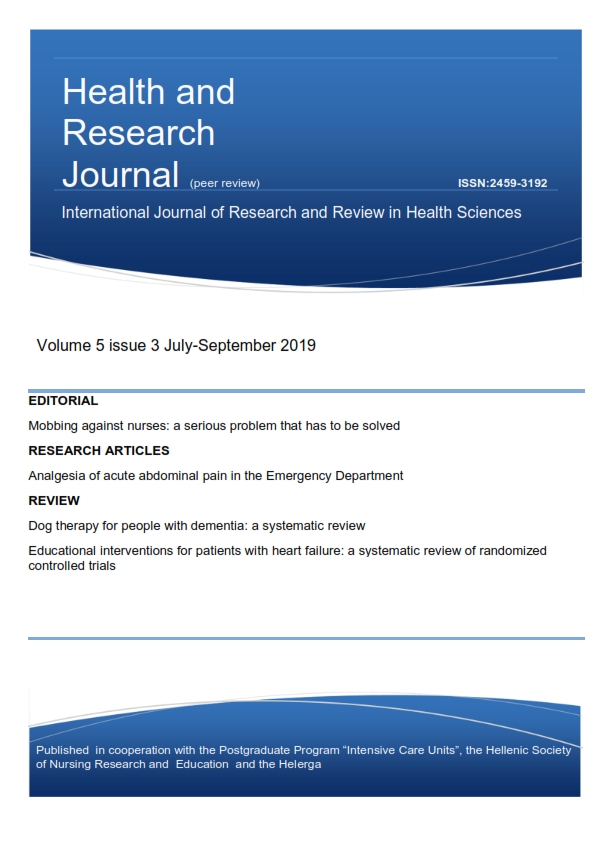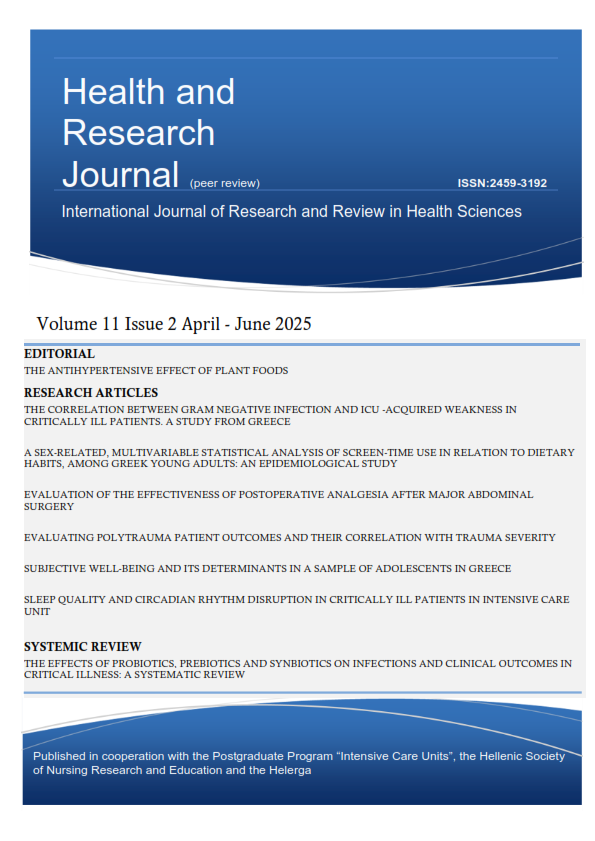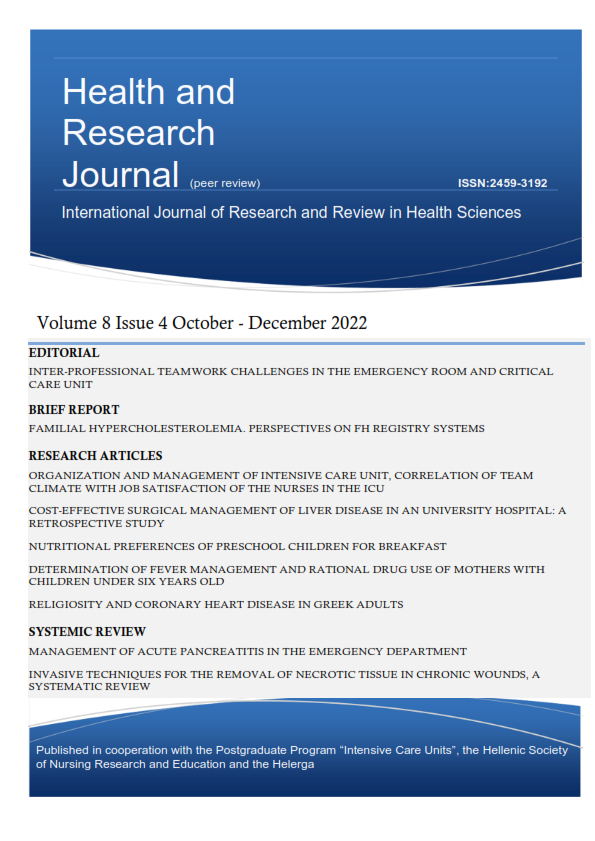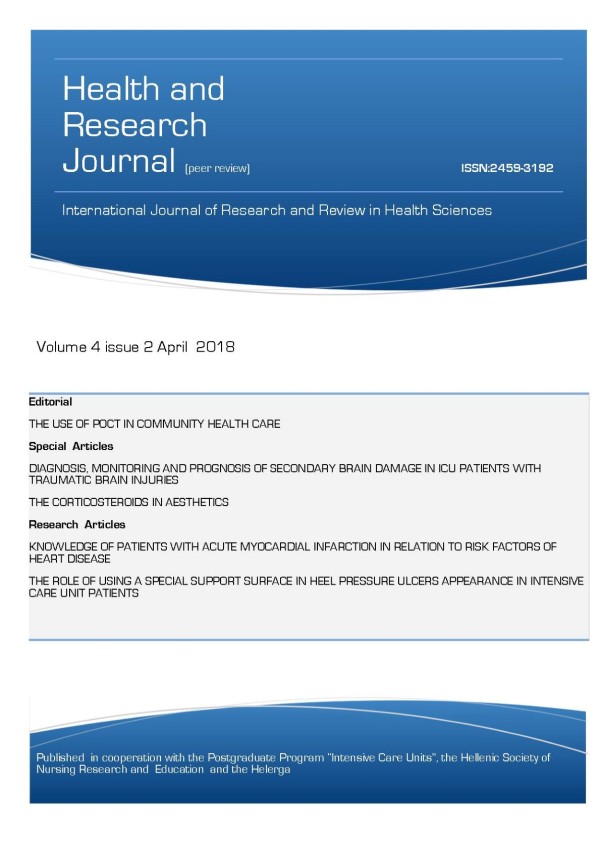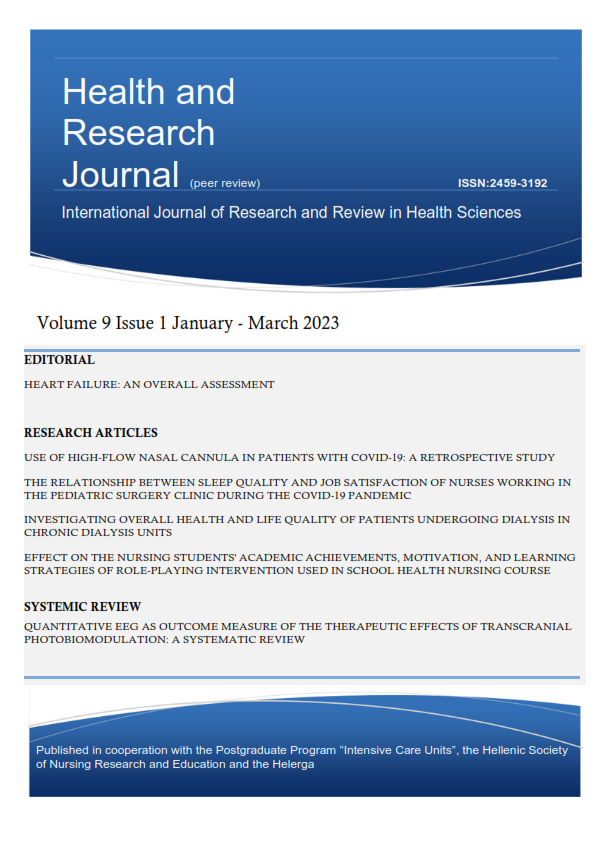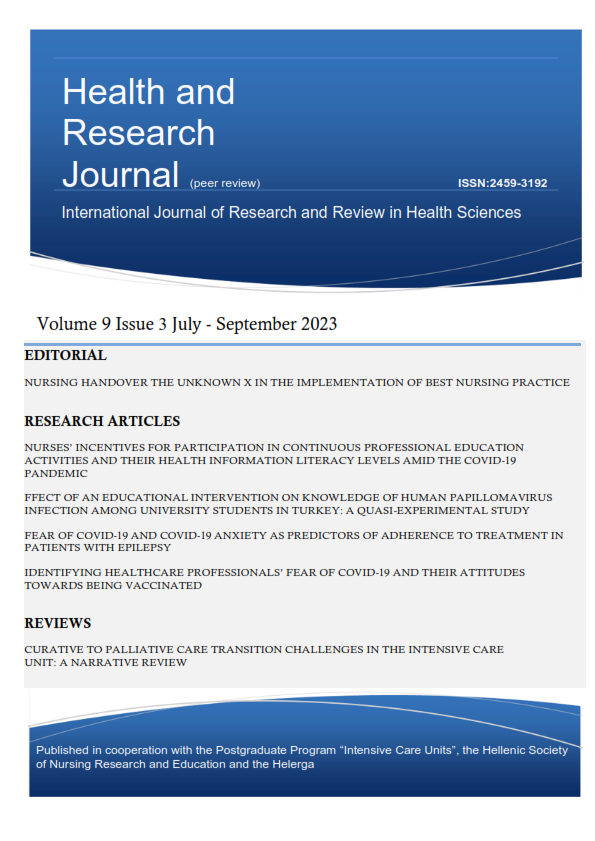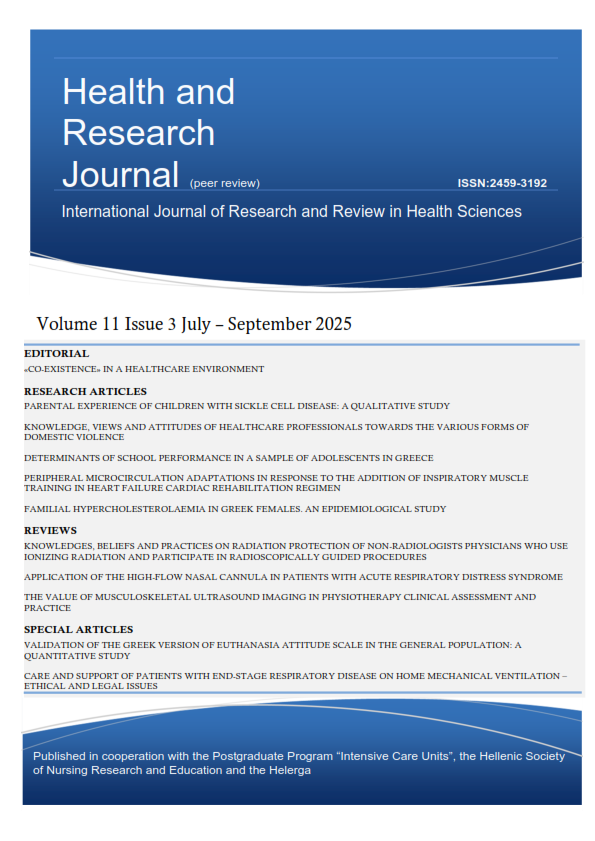Investigation of the workplace boredom and job satisfaction to the ambulance per-sonnel of Crete, Greece
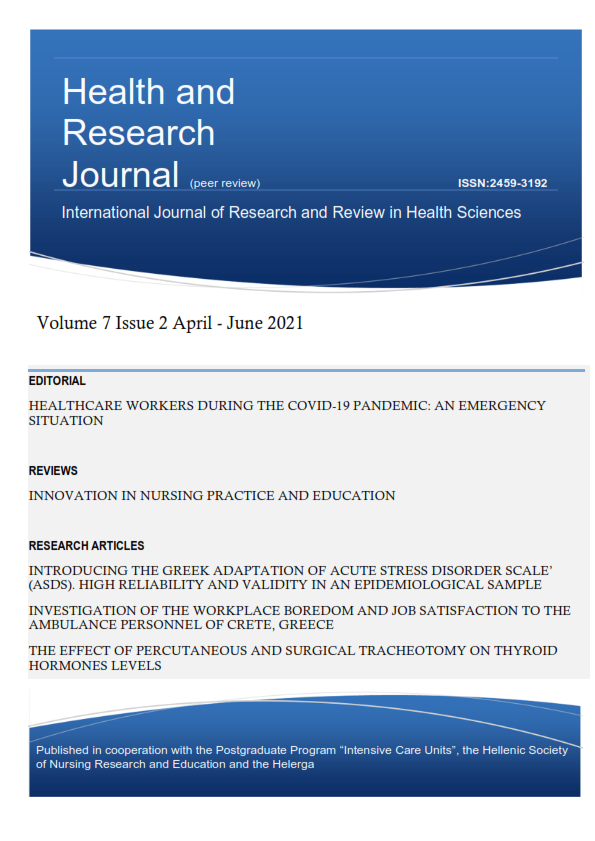
Abstract
Abstract
Background: Numerous of studies have been done to healthcare professionals about job satisfaction and workplace boredom, but very few to ambulance staff. The mental health and emotional well-being of ambulance staff appears to be affected by the emergency character of the work they provide.
Aim: The aim of the present study was to investigate the degree of job satisfaction and workplace boredom to the ambulance staff of Crete.
Material & Methods: It was a cross-sectional study. The ambulance personnel of Crete included in the study. The job satisfaction scale (23 items) and the Boredom Proneness Scale (28 items) were used for data collection. The statistical analysis was performed by the SPSS. V.22.0.
Results: The studied sample consisted of 142 ambulance personnel. Most of them were male (81%), married (72.9%), and had attended secondary school (63.4%). The job satisfaction was 71.1±5.7 and was found to be negatively related to how often someone felt upset (r=-0.192, p=0.02), how often they felt frustrated (r=-0.196, p=0.019) and the frequency that one feels bored (r=-0.515, p<0.001). The score of the Boredom Propensity Scale was 113.4±18.4. Women had statistically significantly greater score in Boredom Propensity Scale than men (118.9±22.6 vs. 112.1±17.1, p=0.037). The overall workplace boredom syndrome was found to be positively related to the frequency the participants are engaged in risky behaviors (r=0.426, p<0.001), how often someone felt upset (r=0.393, p<0.001), how often they felt frustrated (r=0.333, p<0.0001) and the frequency that one feels bored (r=0.212, p=0.011).
Conclusions: Job satisfaction of the sample is at a medium level, while the professional boredom at a fairly high level. The professional boredom is higher in women.
Article Details
- How to Cite
-
Intas, G., Doriaki, G., Platis, C., Lahana, E., & Stergiannis, P. (2021). Investigation of the workplace boredom and job satisfaction to the ambulance per-sonnel of Crete, Greece. Health & Research Journal, 7(2), 74–84. https://doi.org/10.12681/healthresj.26790
- Section
- Original Articles
Copyright notice:
Authors retain copyright of their work and grant the Health and Research Journal the right of first publication.
License:
Articles are published under the Creative Commons Attribution 4.0 International License (CC BY 4.0). This license permits use, sharing, adaptation, distribution, and reproduction in any medium or format, including for commercial purposes, provided that appropriate credit is given to the author(s) and the original publication in this journal, a link to the license is provided, and any changes are indicated.
Attribution requirement:
Any reuse must include the article citation and DOI (where available), and indicate if changes were made.



